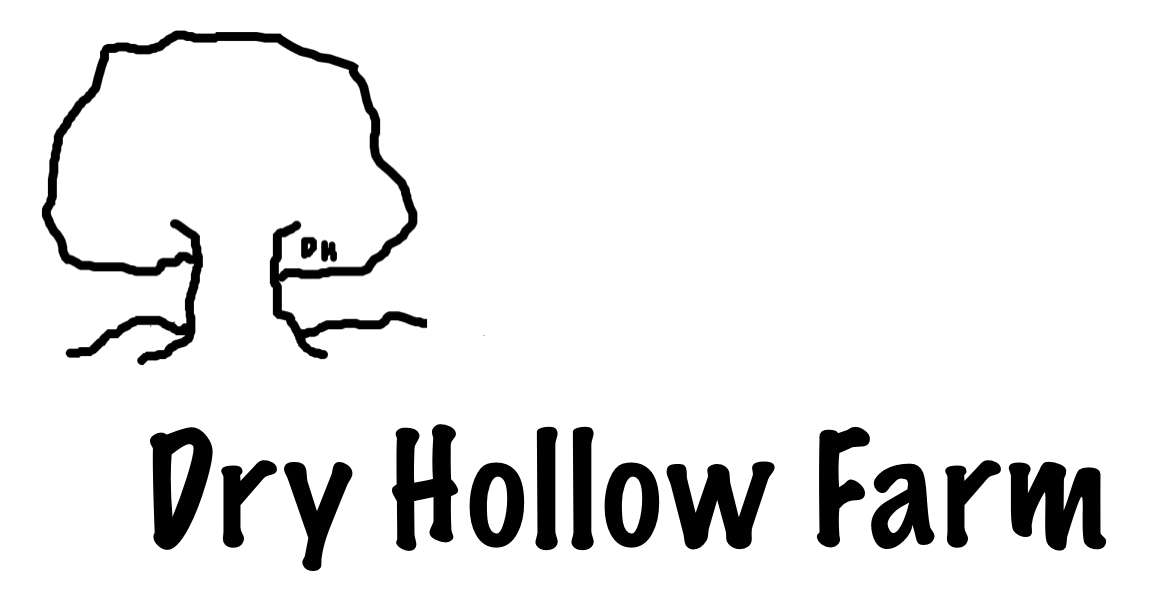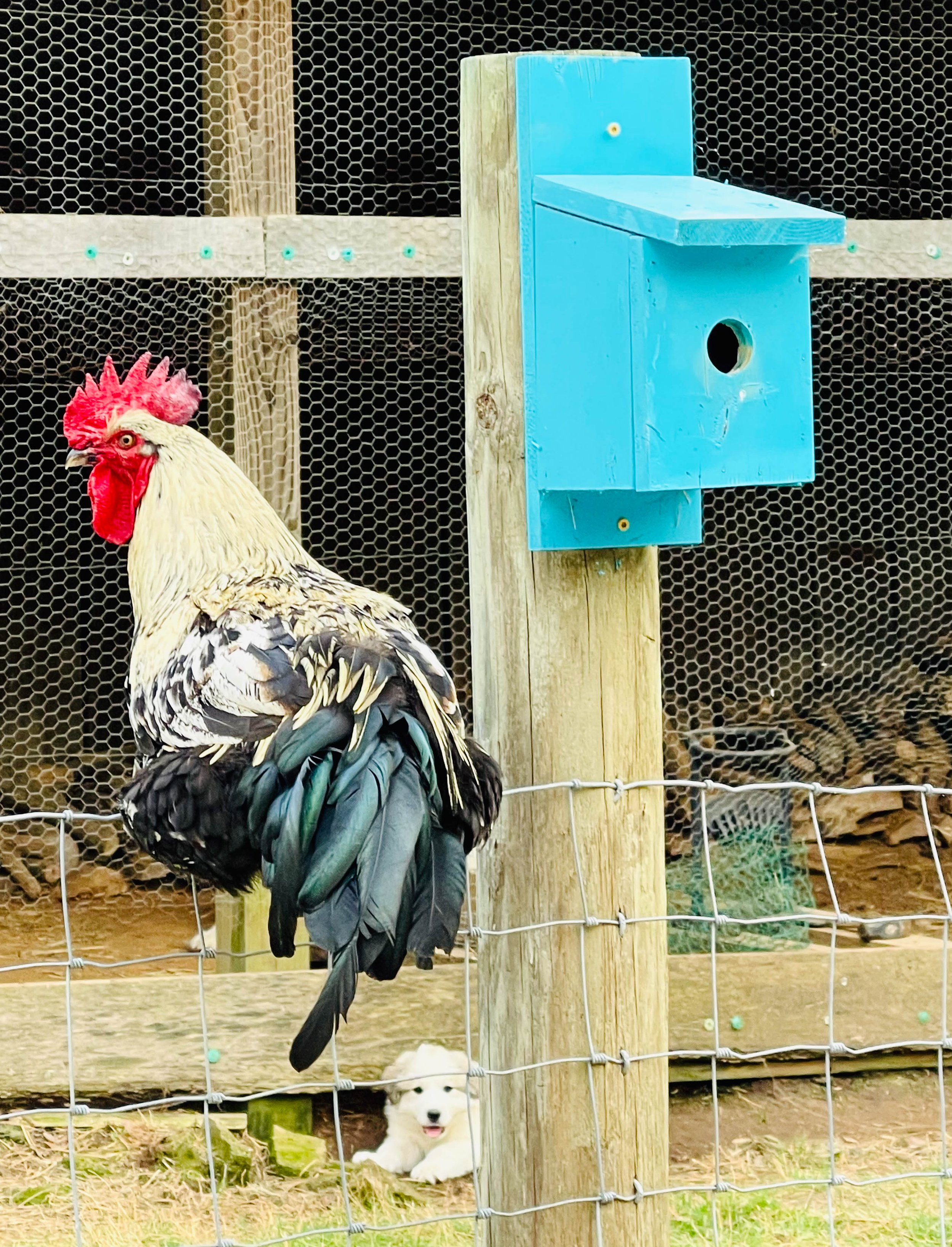In 2023, Dry Hollow Farm is celebrating its 10-year anniversary!
Ten years ago, we had never …
owned a sheep, goat, or livestock guarding dog
driven a t-bar into the ground
made a single bar of soap by hand
raised luffa gourds
pulled a newborn out of any species of animal
handled fleece or felted wool
hand or machine milked an animal
developed or updated a business website
made a social media post of any variety
itemized financial spreadsheets…
The intent of this blog is to share our stories, our experiences, our successes, and our failures.
Feel free to contact us with any questions or ideas you would like for us to address. Although we have experienced many things, the learning process is ongoing and every-changing!
End-of-the-Year Farm Evaluations
If you have read our blog posts from the beginning of this year, you will understand that we consider Dry Hollow Farm an agricultural business. We are running neither a homestead nor a hobby farm. For this reason, analyzing end-of-the-year financials and farm realities is crucial to the decisions we make for the coming years.
Writing Agricultural Grant Proposals
Most years we apply for one or more agricultural grants through the state of Tennessee. These grants have helped us build our herb shack, lean-to greenhouse, and soap shop as well as purchase a variety of agricultural equipment.
Seed Selecting
As the days shorten and temperatures fall, we find ourselves counting the weeks until spring begins! Although we haven’t even made it to Christmas yet, dark evenings and frozen pastures give us time to contemplate preparations for the coming year. One task we find immensely enjoyable is selecting and ordering our herb seeds for the coming growing season.
Freezing Chickens
Early summer we had a clutch of eggs hatch. Nine little chicks emerged and were soon picking their way across the farm behind their mama. Unfortunately, free-range chicken life can be dangerous, and out of the nine, only three have survived until mid-December, when I’m penning this blog. Most succumbed to predators like hawks or simply disappeared never to be seen again. One recently died suddenly of a mysterious illness.
Winter Preppers
Although we have a few cold snaps throughout the fall in western Tennessee, we seldom experience consistently frigid temperatures until after December arrives (and usually not until January and February). For us, the Thanksgiving holiday week usually triggers preparations for the coming cold weather season.
Never a Dull Breeding Moment
For most of our goat herd, breeding season begins in late August and will continue through December. For sheep and goats, shorter days in late summer, fall, and early winter trigger frequent receptivity in our females which in turn encourages males to go into “rut.”
The Selection Process
This past weekend, we made the decision to purchase additional dairy goats to add to our flock. With product sales nearly doubling this year, our milk demand is also growing, and we required more large-breed dairy goats for increased production. Although we have several Nubian and Alpine does, waiting for their kids to reach maturity for milk production was not feasible in the short-term.
How We Fight for Our Ladies
In an earlier post, we discussed the human tendency to personalize animal behavior through anthropomorphism - the assigning of human traits to non-human beings. The tendency of many farm visitors is to label our critters as either “sweet, friendly, and loving” or “mean, greedy, and unkind.” These are primarily human traits assigned to animals who are, at the end of the day, just animals.
Using Everything
We never throw anything away at the farm. Scraps of wood, old buckets, pieces of chain - it seems as if when I throw an item in the trash on Wednesday, Thursday I need it (and right after the trash truck runs, of course!).
The Luffa Harvest
Sometime before the first frost, we harvest our luffa gourds. A frost will immediately kill the vines and damage any remaining hanging gourds if they are not completely dry.
Thoughts on Purchasing Livestock
Although we practice a closed herd as much as possible, we have purchased a wide variety of goats and sheep over the past decade.
A Glimpse of Littlest Life at Dry Hollow Farm
No ten-year anniversary blog is complete without mentioning the tiniest of critters who share space with us at Dry Hollow Farm. From pollinators to spiders to the creatures whose purpose of existence we question - we all share a common space. Most days I walk by without noting their existence, but every once in awhile, I pull out a camera lens and try to capture a moment of their life.
Watching the Weather App
According to gardening calendars, the earliest frost date for western Tennessee is October 15th. Once the month of October arrives, we begin watching weather forecasts religiously so we can prepare for these first below-freezing temperatures.
Farm Photography (2)
As an agribusiness, our primary focus is creating value-added products for direct, retail, and wholesale customers. What does this mean? We do not produce row crops, and although we do sell livestock on occasion, they are not our main source of agricultural income. Instead we take something generated on our farm (for example, organic herbs or goat milk) and create products for marketing. We market our products in three ways:
Farm Photography (1)
Our online presence, both through our website and social media, requires a serious approach to farm photography and videography. Our farm photos fall into one of two categories: (1) farm animals, natural flora and fauna, and landscapes; and (2) products. This post will focus on the farm while next week’s post will focus on products.
Harvesting Herbs (2)
We use the herbs we grow and harvest at Dry Hollow Farm in a variety of ways: soaps, salves, lotion bars, infused-oils, and dried herbal teas. These herbs include the organically-grown varieties we cultivate from seed and the wild herbs we gather from across our farm property.
Harvesting Herbs (1)
As early September arrives, we begin counting down the weeks until our first frost date. In western Tennessee, this usually occurs somewhere around October 15th. Many of our herbs cannot survive much below 40 degrees, so our growing season will dramatically come to a close overnight.
Choosing Pasture Waterers
We are generally a low-tech, small-scale agricultural operation. Most days you will find us using a wheelbarrow, rake, pitchfork, and shovel. For bigger jobs, we may hook up a wagon or fertilizer spreader behind the lawn tractor we use for mowing. I suppose all of the manual labor keeps us healthy, as much as we might complain about it all. However, for the most part, the expense of larger equipment is unnecessary at this point in our operation.
Fighting Inertia
The month of August is the time of year I have difficulty maintaining my motivation around the farm. Days are hot and humid and never seem to end. The sun takes forever to drop below the horizon. Evenings remain sticky and airless, and we don’t sleep well. Before I know it, I’m behind with every farm chore. Weeds proliferate, scrubby brush becomes overgrown, and every animal looks at me as if to say, “Is this EVER going to end?”
The Problem with Parasites
The Problem with Parasites: Every long-term goat owner knows the symptoms as soon as they seem them.




















